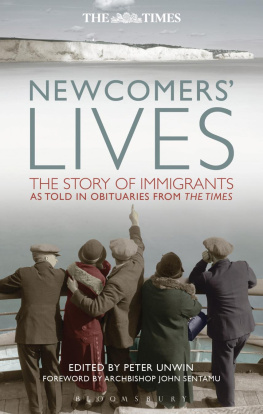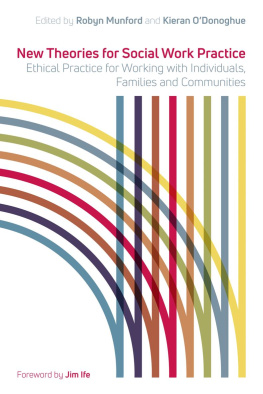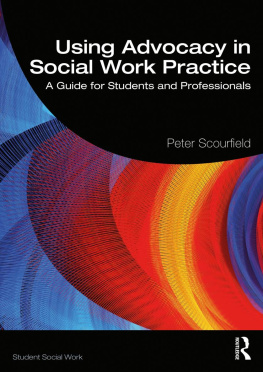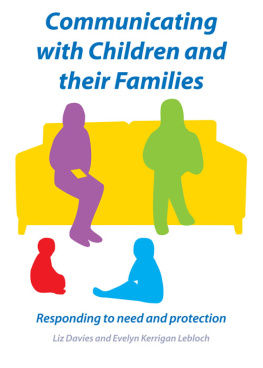Peter Unwin and Rachel Hogg 2012
First published 2012
Apart from any fair dealing for the purposes of research or private study, or criticism or review, as permitted under the Copyright, Designs and Patents Act, 1988, this publication may be reproduced, stored or transmitted in any form, or by any means, only with the prior permission in writing of the publishers, or in the case of reprographic reproduction, in accordance with the terms of licences issued by the Copyright Licensing Agency. Enquiries concerning reproduction outside those terms should be sent to the publishers.
SAGE Publications Ltd
1 Olivers Yard
55 City Road
London EC1Y 1SP
SAGE Publications Inc.
2455 Teller Road
Thousand Oaks, California 91320
SAGE Publications India Pvt Ltd
B 1/I 1 Mohan Cooperative Industrial Area
Mathura Road
New Delhi 110 044
SAGE Publications Asia-Pacific Pte Ltd
3 Church Street
#10-04 Samsung Hub
Singapore 049483
Library of Congress Control Number: 2011932846
British Library Cataloguing in Publication data
A catalogue record for this book is available from the British Library
ISBN 978-0-85702-729-0
ISBN 978-0-85702-730-6 (pbk)
Typeset by C&M Digitals (P) Ltd, Chennai, India Printed and bound by CPI Group (UK) Ltd, Croydon, CR0 4YY Printed on paper from sustainable resources
INTRODUCTION
Who would want to be a social worker these days, especially with children and young people? Well, we hope you will and that is why you are reading this book. The media and most people you meet will all have their own opinions about social work, many of which may be negative as they only hear about the failures and tragedies. This is because of confidentiality issues, which means that most social work success stories stay in the private domain.
This book is intended for students on social work courses and for newly qualified staff; it may also be useful for professionals across other disciplines whose everyday work brings them into contact with social workers.
We have written this book with the intention of playing a part towards changing the image of social work to that of an exciting, dynamic and ever-changing profession which deals with issues that are far more challenging than are found in the commercial and business worlds. We have tried to keep the book as jargon free as possible and have included a glossary which gives an explanation for the words and topics that appear in the text in bold.
The book is designed to help social workers become more effective in the very complex, messy environment in which they work. We did not want it to be a How to Survive Social Work type book, but rather one aimed more at How to Thrive in Social Work by sharing practice wisdom, skills and information intended to help you thrive and flourish in what should be an exciting, political and socially valued role.
We believe that an effective social worker with children and families is a person who is:
- Aware of self and how they present to others
- Aware of their strengths and weaknesses
- Clear about their motivation for being in social work
- Willing to invest in children and families whom others may have given up on
- Empathic but wary of superficial explanations
- Knowledgeable, open to new learning and able to learn from and work with others
- Able to form meaningful, if often brief, relationships with children and families
- Politically aware and committed to social justice and equality of opportunity
- Child-centred in their work
- Organised and efficient with paper and IT systems
- Able to recognise that personal and organisational resources are finite
- Innovative and creative
- Able to find the requisite balance between home life and work life.
Social work practice never stands still, and English social work has a long history, which can be traced back to the nineteenth century. However, the actual title of social worker has only been protected by law since 2005, when social workers were tragedy (Laming, 2003).
Something of a new wind is blowing as we write this book, the , and who is able to perform the necessary administrative duties that effective social work demands while remaining all the time focused on the needs, rights and protection of children? We sincerely hope that you will, and that this book will spur you to a long-lived career, characterised by continual improvement so that each year your effectiveness increases; and that your practice will become inspirational to others, colleagues, the children and their families.
Our combined career experiences, which include those of social worker, foster carer, team manager, senior manager, trustee, inspector, nurse, midwife, academic, board member, service user and entrepreneur have all informed our input into this book. We do not claim to know it all, however, and are constantly learning new things about ourselves and our practice. We learn much on a day-to-day basis from our colleagues in social work in Coventry and beyond, and from staff and students at the University of Worcester where thanks go out especially to Lisa Hughes, Linda Merris and Philip Hoare for their help and guidance in the compilation of this book.
STRUCTURE OF THE BOOK
This book is designed as a skills handbook that can be either read from start to finish or dipped into for the content, reflective exercises and case studies contained within the chapters. The relevance of each chapter to the , which hold much valuable information that we all need to read first hand to improve the accuracy of our knowledge base and to reflect on and improve our own practice.
looks at how you might achieve such balance, drawing on the views of children and families in terms of what they expect from an effective social worker. Finally, we bring together the messages within the book in a cautiously optimistic conclusion, hopeful that the unprecedented recent focus of the media and the government-commissioned reviews will indeed create a working environment in which those of you with the skills and outlooks that we have promoted in this book will be able to effectively promote the welfare and safeguard the lives of the children and families with whom you work.
Each chapter concludes with suggestions for further specialised reading and resources, with new websites and training materials appearing all the time as the contested areas of children and families social work continue to attract emotional, moral, political and practice attention. Hopefully, you will keep up your knowledge base and always be open to new learning and insight, starting perhaps with this book. Effectiveness and meaningful social work with children and families is more than league tables and completing reports and meeting deadlines. The effectiveness of your social work skills is likely be measured by some of the children and families with whom you work in less tangible ways and we also know that for other children and their families the difference between effective social work and ineffective social work can be one of life and death.










